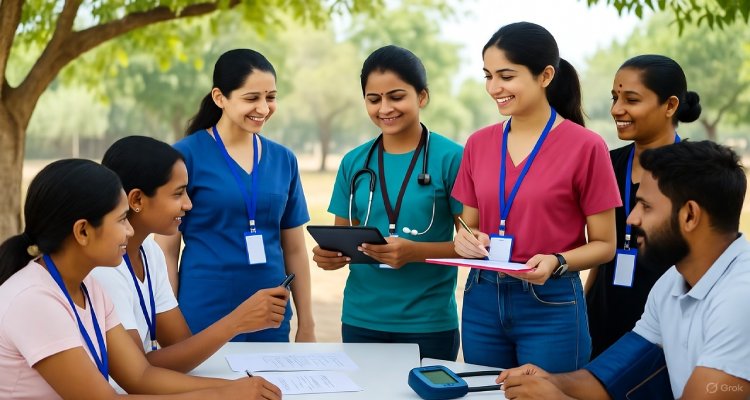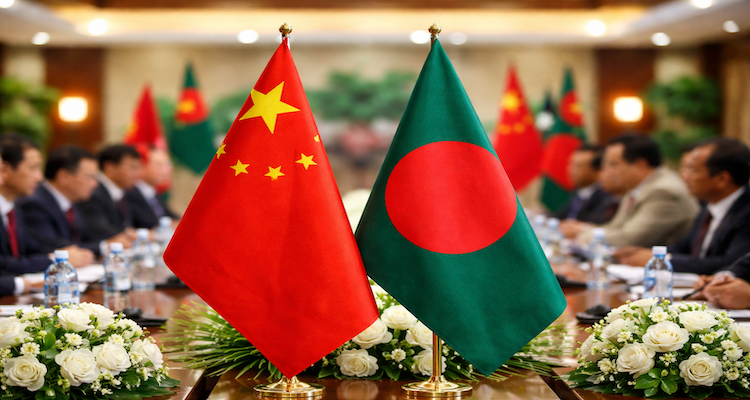Swasth Nari, Sashakt Parivar Abhiyaan: India’s Record-Breaking Health Revolution

India’s ‘Swasth Nari, Sashakt Parivar Abhiyaan’ secures three Guinness World Records, empowering women’s health initiatives through record-breaking community participation.
Introduction: A Nation’s Commitment to Women’s Health
In a defining moment for India’s public health landscape, the Ministry of Health and Family Welfare (MoHFW) has achieved three Guinness World Records under the nationwide ‘Swasth Nari, Sashakt Parivar Abhiyaan’ (SNSPA). The campaign, rooted in the belief that women’s health forms the foundation of healthy families and resilient communities, mobilized millions across the country between September 27 and October 2, 2025. Its sweeping participation has set a new milestone in global health mobilization, demonstrating India’s growing emphasis on preventive healthcare and digital outreach.
Context & Background: The Vision Behind the Abhiyaan
Launched by Prime Minister Narendra Modi, SNSPA was conceived as a collaborative initiative by the MoHFW and the Ministry of Women and Child Development (MoWCD) during Poshan Maah—India’s Nutrition Month. The goal was straightforward yet ambitious: to ensure accessible, preventive, and inclusive healthcare for women and children in every district.
Through this initiative, the government sought to address long-standing gaps in awareness and participation in women’s health programs. Platforms like Anganwadi centers became vital in delivering last-mile health services, supported by an unprecedented coalition of ministries, institutes, and civil society organizations.
SNSPA is part of India’s broader vision of an inclusive development model, where the concept of “Swasth Nari” (Healthy Women) translates into “Sashakt Parivar” (Empowered Families)—a reflection of the interconnectedness of women’s well-being and national progress.
Main Developments: Setting Global Records and Local Impact
In one of the most expansive public health campaigns in recent history, SNSPA broke three Guinness World Records:
-
Most people to register for a healthcare platform in one month – over 3.21 crore participants.
-
Most people to sign up for an online breast cancer screening in one week – over 9.94 lakh.
-
Most people to sign up for vital signs screening online at the state level in one week – over 1.25 lakh.
Beyond record-setting numbers, SNSPA’s scale speaks volumes. The initiative covered every district of India, hosting 19.7 lakh health camps and recording a footfall exceeding 11 crore across all outreach platforms. The campaign succeeded in bringing together over 20 ministries, alongside medical colleges, private hospitals, and national institutes, to push a unified health agenda.
It wasn’t just officials driving the effort; over five lakh panchayat representatives, 94 lakh self-help group members, and 1.14 crore school and college students became part of the movement. This community-driven model gave the campaign both credibility and sustainability.
Expert Insight: Health Professionals Laud a Transformative Effort
Public health experts have described SNSPA as a “turning point in participatory healthcare.” Dr. Meenakshi Bhatnagar, a senior community medicine specialist based in Delhi, observed that “the strength of SNSPA lies in its integration of technology with grassroots participation. By linking digital health platforms with physical camps, the initiative bridges both awareness and access.”
She further emphasized that the large number of screenings—particularly for breast cancer, diabetes, and hypertension—reflects a shift in public attitude toward preventive healthcare, often overlooked in developing countries.
Similarly, social policy analyst Ramesh Sharma noted that the campaign’s “whole-of-society” model aligns with global Sustainable Development Goals (SDGs), particularly SDG 3 (Good Health and Well-being) and SDG 5 (Gender Equality).
Impact & Implications: Beyond Records and Toward Sustainable Health
The statistics from SNSPA reveal the tangible outcomes of an integrated health mission. Over 1.78 crore hypertension screenings, 1.73 crore diabetes screenings, and nearly 70 lakh oral cancer screenings were completed nationwide. In maternal health, 62.6 lakh antenatal care check-ups and 1.43 crore vaccine doses were administered. Furthermore, 1.51 crore individuals underwent anaemia tests, and 85.9 lakh women were screened for tuberculosis.
A remarkable 2.14 crore people took part in counselling and wellness sessions focusing on nutrition, fitness, mental health, and lifestyle diseases—marking a nationwide behavioral shift toward preventive well-being.
The campaign also resulted in the registration of over 2.68 lakh Nikshay Mitra volunteers dedicated to supporting tuberculosis patients—an initiative closely tied to India’s TB elimination goals for 2025.
SNSPA’s comprehensive approach indicates that large-scale health mobilization need not remain a top-down process. Instead, it demonstrates that government-led initiatives can thrive on collective participation, with private and civic sectors playing complementary roles.
Public Reaction and Grassroots Voices
Across urban and rural India, community reactions have been overwhelmingly positive. Women who attended health camps shared how the campaign introduced them to screenings and consultations otherwise inaccessible in their local areas.
In districts such as Gadchiroli, Jharkhand, and Champaran, village-level volunteers reported an unprecedented response, particularly from women seeking breast cancer and anaemia screenings. “For many of us, this was the first time anyone spoke to us about preventive health openly,” shared Sunita Devi, a self-help group member from Bihar.
This empowerment-through-health narrative has turned into a social momentum that extends far beyond the campaign window, setting a precedent for continuous care and awareness.
Conclusion: A Model for Inclusive National Health Missions
The success of the Swasth Nari, Sashakt Parivar Abhiyaan is more than a headline—it represents a template for how India can approach healthcare equity in the digital age. By transforming women’s health awareness into a collective endeavor, the campaign showcases how public policy, technology, and community participation can intersect to achieve monumental results.
As India celebrates these Guinness World Records, the true achievement lies in the millions of lives touched, the diseases prevented, and the foundations laid for a healthier future. In a nation where strong families begin with healthy women, SNSPA stands as a proof of what can be accomplished when policy meets purpose and people join in action.
Disclaimer: This article is based on official releases and publicly available data from the Ministry of Health and Family Welfare and related government publications. It is intended for informational and educational purposes.









